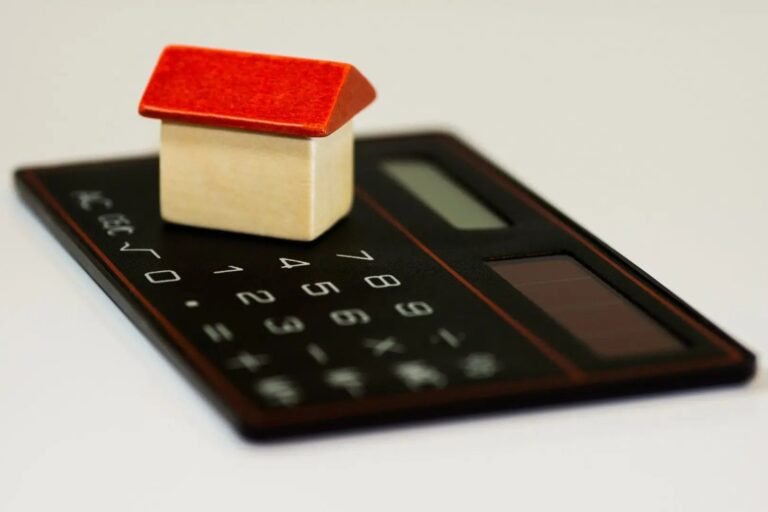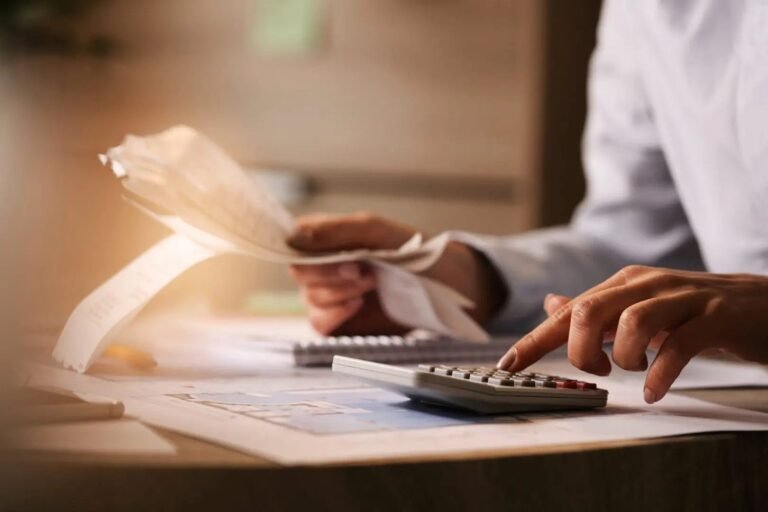Understanding income tax and personal allowance can be overwhelming and confusing, especially with the different elements involved.
However, it is an essential part of managing your finances and ensuring that you pay the correct amount of tax.
As one of the largest revenue sources for the UK government, income tax is charged on various forms of income, such as employment income, pension income, rental income, and dividends. This article will explain how income tax and personal allowance work, helping you better understand how much you must pay.
What is Income Tax?
An income tax is a form of taxation that applies to individuals or entities based on the income or profits they generate. Typically, income tax is calculated by multiplying a predetermined tax rate by the taxable income. The specific tax rates can differ based on factors such as the taxpayer’s characteristics and the type of income involved.
Income tax is one of the biggest earners of the UK government. It is charged in employment income, taxable benefits from your employment, profits from self-employment, pension income, rental income, interest income from banks, and dividend income among others.
Income tax has a lot of elements and can be confusing. In this article we will discuss about how income tax and personal allowance works, which may help you figure out how much tax you need to pay.
For a hassle-free self-assessment tax return, consider using our specialized services at UK Property Accountants.
What is Personal Allowance?

Personal allowance is a limit above which you will have to pay your income tax. When calculating, your income tax personal allowance is deducted from your net income. And the amount you have left after deducting personal allowance becomes your taxable income.
In 2022/23, the personal allowance is £12,570. However, if your net adjusted income is more than £100,000, your personal allowance is reduced by £1 for every £2 of net income above £100,000.
For Example,
Sarah has a net adjusted income of £120,000 for the tax year 2022/23. How much personal allowance would she be eligible for?
- She has net adjusted income of more than £100,000, which means her personal allowance will be reduced.
- £20,000 is above the threshold amount. (£120,000- £100,000),
- Half of this excess amount i.e., £10,000 (£20,000/2) will be reduced from the regular personal allowance.
- Personal allowance applicable for her would be £2,570. (£12,570 – £10,000)
Is Personal Allowance Available for Everybody?
Personal allowance is available for all UK residents, including children.
For non-UK residents, you will get personal allowance if any of the following apply:
- You’re a British citizen
- You’re a citizen of a European Economic Area (EEA) country
- EEA country includes national of Austria, Belgium, Bulgaria, Croatia, Cyprus, Czech Republic, Denmark, Estonia, Finland, France, Germany, Greece, Hungary, Iceland, Irish Republic, Italy, Latvia, Liechtenstein, Lithuania, Luxembourg, Malta, Netherlands, Norway, Poland, Portugal inc. Madeira & The Azores, Romania, Slovakia, Slovenia, Spain, Sweden and the United Kingdom
- You are a national of Israel or Jamaica
- You are an individual who is a resident of : Austria, Barbados, Belgium, Fiji, France, Germany, Greece, Ireland, Kenya, Luxembourg, Mauritius, Myanmar (Burma), Namibia, Netherlands, Portugal, Swaziland, Sweden, Switzerland, Zambia
- You’ve worked for the UK government at any time during that tax year
You might also get it if it’s included in the double-taxation agreement between the UK and the country you live in.
Note:
If an individual is a resident of Kenya, Mauritius or Zambia, or a resident but not a citizen of Austria, Belgium, *France, *Germany, Luxembourg, *Netherlands, Portugal, Sweden, or Switzerland, they are not entitled to personal allowances if their UK income consists solely of dividends, interest and royalties or any combination of them.
How Income Tax and Personal Allowance Works?
Income tax is a tax on your income, meaning the money you earn from your job, investments, or any other source of income. In the UK, income tax is collected by Her Majesty’s Revenue and Customs (HMRC) and is used to fund public services such as healthcare, education, and infrastructure.
The amount of income tax you must pay depends on your income and other factors, such as age, marital status, and whether you have children. The tax year runs from 6 April to 5 April of the following year.
Personal allowance is the amount of income you can earn before you start paying income tax. In the tax year 2022/23, the personal allowance is £12,570. This means you can earn up to this before paying income tax.
If you earn more than the personal allowance, you must pay income tax on your earnings above the personal allowance. The income tax rates and bands for the tax year 2022/23 are as follows:
- Basic rate: 20% on income between £12,571 and £50,270
- Higher rate: 40% on income between £50,271 and £150,000
- Additional rate: 45% on income over £150,000
For Example,
if your income is £30,000, you would pay 20% income tax on the amount above the personal allowance, which is £17,430 (£30,000 – £12,570). So, your income tax would be £3,486 (20% of £17,430).
Don’t let tax calculations overwhelm you. Use our Income Tax Calculator to get a clear and accurate estimate of your tax obligations
Factors that Affect Personal Allowance and How They Interact
1. Marriage Allowance

Marriage allowance allows individuals to transfer 10% of their personal allowance to their civil partner or spouse.
Here, though the spouse who transfers their personal allowance is reduced by 10%, the spouse who gains gets a reduction in tax liability equal to 20% of the transferred amount.
This can help couples with under-utilised personal allowance – we should also note that personal allowance cannot be transferred to spouses or civil partners who are not entitled to UK allowances.
2. Interaction of Personal Allowance with Gift Aid Scheme
Individuals who donate to charities or charities registered in European Economic Area (EEA) receive tax relief.
In addition to relief, there is also the interaction between donation or gift aid payments and personal allowance.
As discussed earlier, personal allowance is reduced if adjusted net income exceeds the threshold of £100,000. To arrive at ‘adjusted net income’ for the purposes of determining the personal allowance, an adjustment needs to be made to net income if the taxpayer has donated to charity under the Gift Aid Scheme.
For this, the gross donation is deducted from normal net income the resulting figure is adjusted net income, which is used for personal allowance adjustment.
3. Restriction of Personal Allowances Where Remittance Basis Claimed
Individuals who are residents in the UK but not domiciled in the UK can choose to be taxed on their foreign income either on arising basis or on a remittance basis.
If an individual chooses to be taxed on a remittance basis, they can only be taxed on foreign income if bought in the UK or used or enjoyed in the UK. If the income is kept offshore, it is free from UK tax. Such individuals will not have any personal allowance.
Where an individual has “unremitted foreign income and gains” of £2,000 or less, the remittance basis applies automatically. However, in this case, they still get a full personal allowance.
It’s important to note that other factors can affect your income tax liability, such as deductions for pension contributions, charitable donations, and certain work-related expenses. It’s always a good idea to seek professional advice if you’re unsure about how much income tax you should be paying.
Conclusion
In conclusion, understanding how income tax and personal allowance work is crucial for managing your finances and ensuring accurate tax payments. Income tax is a form of taxation applied to individuals or entities based on their income or profits.
It is a significant revenue source for the UK government and covers various types of income, including employment, pensions, rentals, and dividends. Personal allowance, on the other hand, is the threshold above which income tax must be paid. Deducting personal allowance from net income determines the taxable income. It is important to note that personal allowance is subject to reduction for individuals with net adjusted income above £100,000.
Factors such as marriage allowance, the interaction with the gift aid scheme, and the remittance basis can affect personal allowances. Additionally, other factors like deductions and expenses can impact income tax liability. Seeking professional advice is recommended for accurate tax calculations.
To ensure that you are managing your income tax and personal allowance effectively, it is important to stay informed and up-to-date with the latest tax regulations and changes.
We are dedicated to solve your queries.
Contact us for assistance at any stage of your journey.









